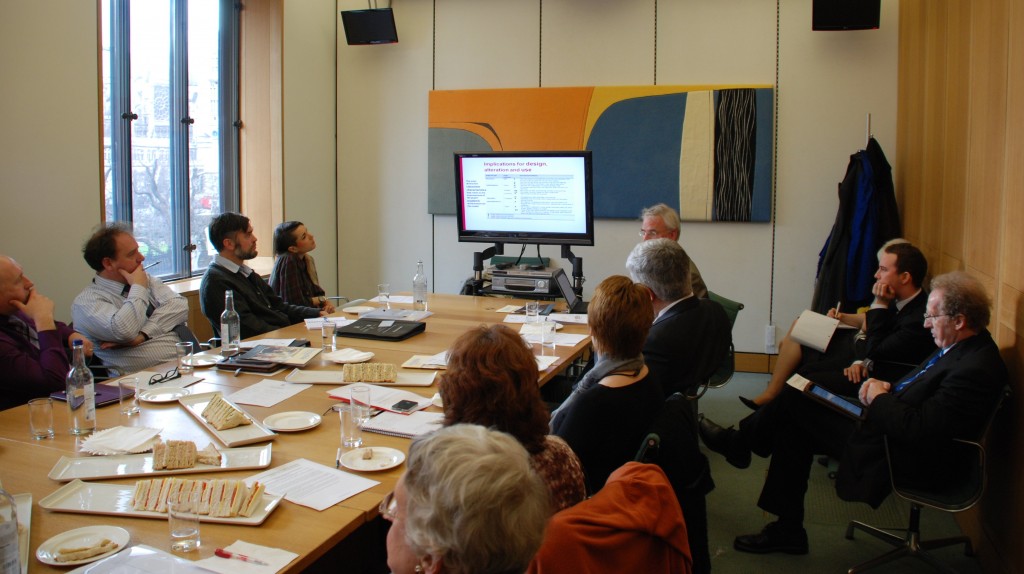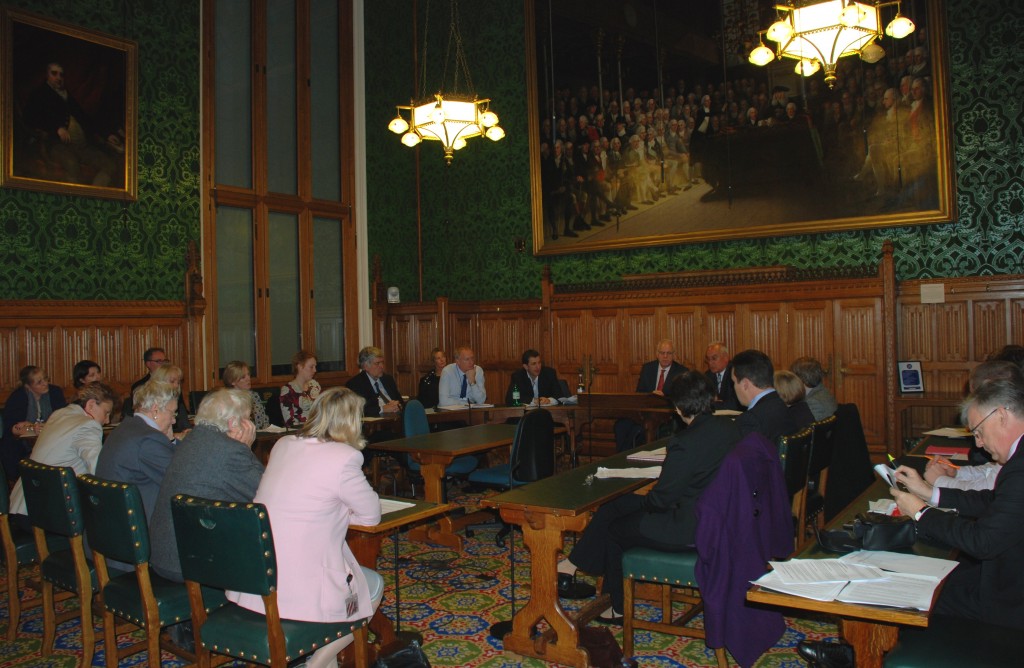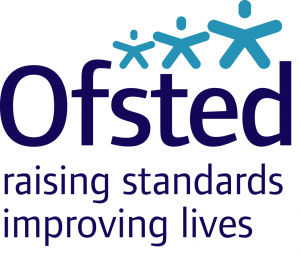On Tuesday 11 February 2014, the All Party-Parliamentary Group for Education examined what impact the classroom learning environment has on educational attainment. The meeting was addressed by Professor Peter Barrett of Salford University, who is currently conducting research in this area, Murray Hudson, of Grantells Ltd and Will Hinks of Metalliform.
Welcomed and introduced by the APPG’s Co-Chair, Nic Dakin MP, Professor Barrett gave a detailed presentation concerning the evidence that his study has uncovered.
Professor Barrett explained that his study has devised a system to isolate the impact the classroom has on attainment in primary schools. The results of Phase One of his study reveal that the classroom environment accounts for 25% of the variation in learning achieved by pupils during a school year. He explained that the ongoing Phase II of the study uses a far greater sample size and he would expect the impact the classroom has to be reduced. Current results would suggest an impact figure of 13%.
Professor Barrett showed the meeting contrasting photos from many of the schools he visited to illustrate his findings. He highlighted several factors as being of importance, including: the level of natural light and good quality artificial light; adjustable chairs; how much room there is and if there are different areas in the classroom; the ability for students to personalise their classrooms; classrooms having the right level between overstimulation and being bare; and flexibility to change the classroom layout rather than enough space just for rows of desks.
Other findings however were surprising. For example, contrary to perceived wisdom, it was found that cooler colours worked better with smaller children by helping calm them down whilst warmer, brighter, colours seemed to work better with older children.
Professor Barrett wished to stress that many of his findings indicate cheap ways teachers can affect the attainment of their students at the present time rather than only be something that can be implemented at the start of a new school building. He also made the comment that, in his view, it was the 1950s buildings which had the best and most flexible ‘teaching spaces’.
After Professor Barrett finished his talk the Chair invited comments and questions. Contributions, from Lindsey Roy MP, Baroness Howe and members of the furniture industry, covered subjects such as possible Government support for Professor Barrett’s findings, training teachers to make use of better classroom design, spaces for play and frustration that often new builds went way over budget (mostly due to inexperienced teachers, architects and builders not used to school design). So often the budget for the furnishings gets cut as a result. One attendee commented that by his calculation, schools spend on average ½ a penny per day on what a child will sit on for five to six hours daily.



